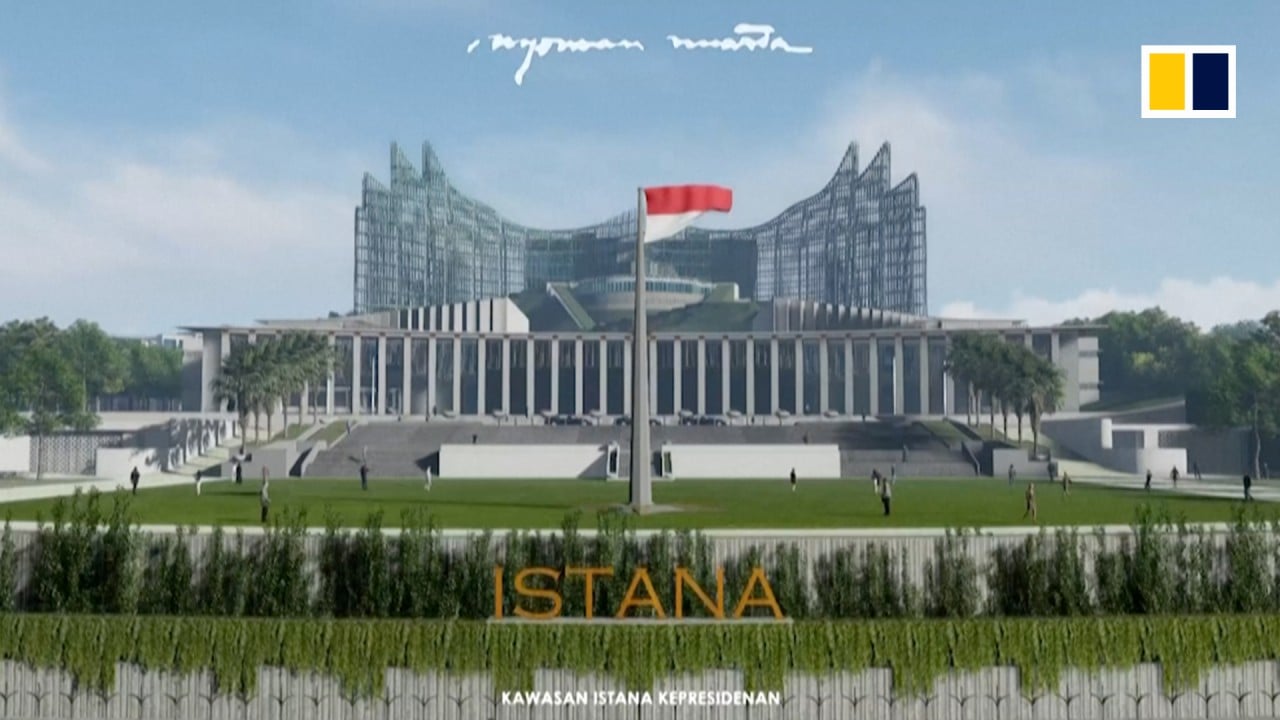Indonesia election: where Joko Widodo’s would-be successors stand on US-China ties, defence and the economy
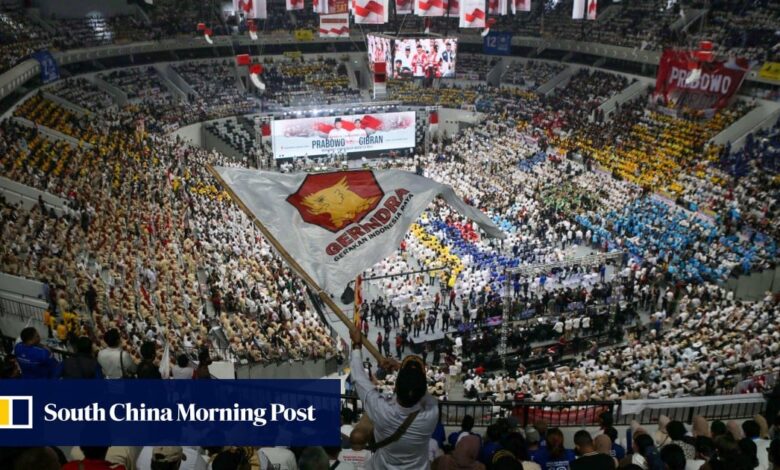
[ad_1]
All three candidates share some common policy platforms, such as a commitment to modernising Indonesia’s armed forces and maintaining a free and active foreign policy. But they differ, analysts say, on their economic strategies, campaign rhetoric – and desire to either preserve or abandon the outgoing president’s legacy.
Foreign-policy objectives
Closer to home, rising regional tensions are also reflected in the candidates’ policy platforms, with analyst Ahmad Rizky Umar predicting that Ganjar would veer closest to “the pattern established by Jokowi” – as Widodo is popularly known- “by delegating foreign political issues” to his foreign minister.
“Anies and Muhaimin will tend to be more critical of China in terms of maritime territorial integrity,” said Ahmad Rizky, an associate lecturer and researcher at the University of Queensland’s School of Political Science and International Studies in Australia. “But I am not sure that Anies will eliminate the engagement with China that Jokowi has been doing so far.”
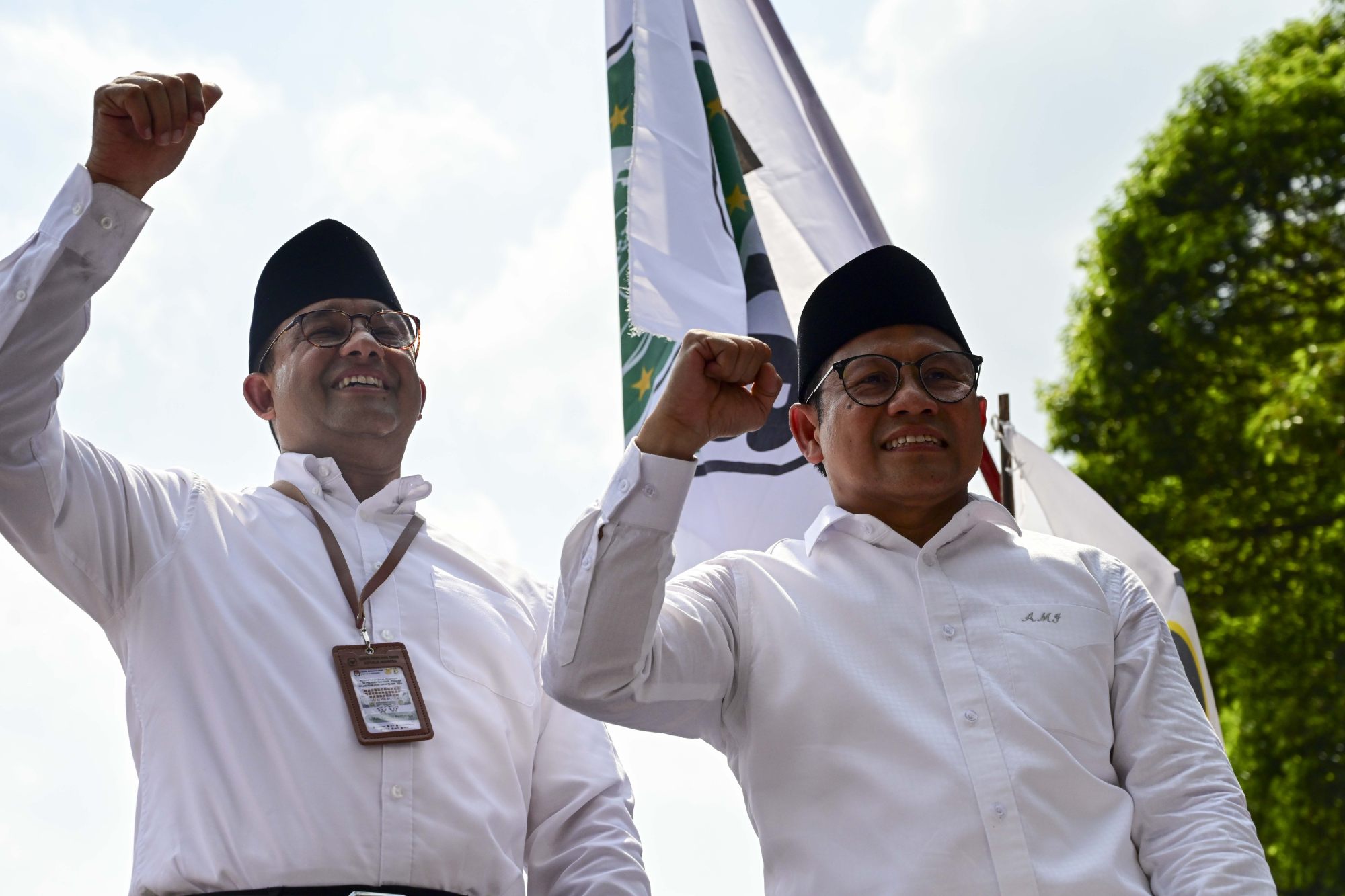
Anies, who has trailed in opinion polls in recent months, said in his manifesto that he aims to “position Indonesia as a balancing force in the global order” so that the country can “prevent the domination of certain powers”, which Ahmad interpreted as a criticism of China’s rising assertiveness.
Prabowo, described by analysts as a “national security conservative”, has been the most explicit when it comes to addressing fraught geopolitics, underlining that a major strategic challenge for Indonesia would be “rivalry between the two superpowers over Taiwan that could threaten the smooth supply chain of food, energy and trade” that passes through the Malacca Strait and North Natuna Sea.
The former special forces commander, who is making a third tilt at the presidency having twice lost to Widodo in 2014 and 2019, has pledged to “restore Indonesia’s foreign political authority as a large and sovereign country in the eyes of the international community”.
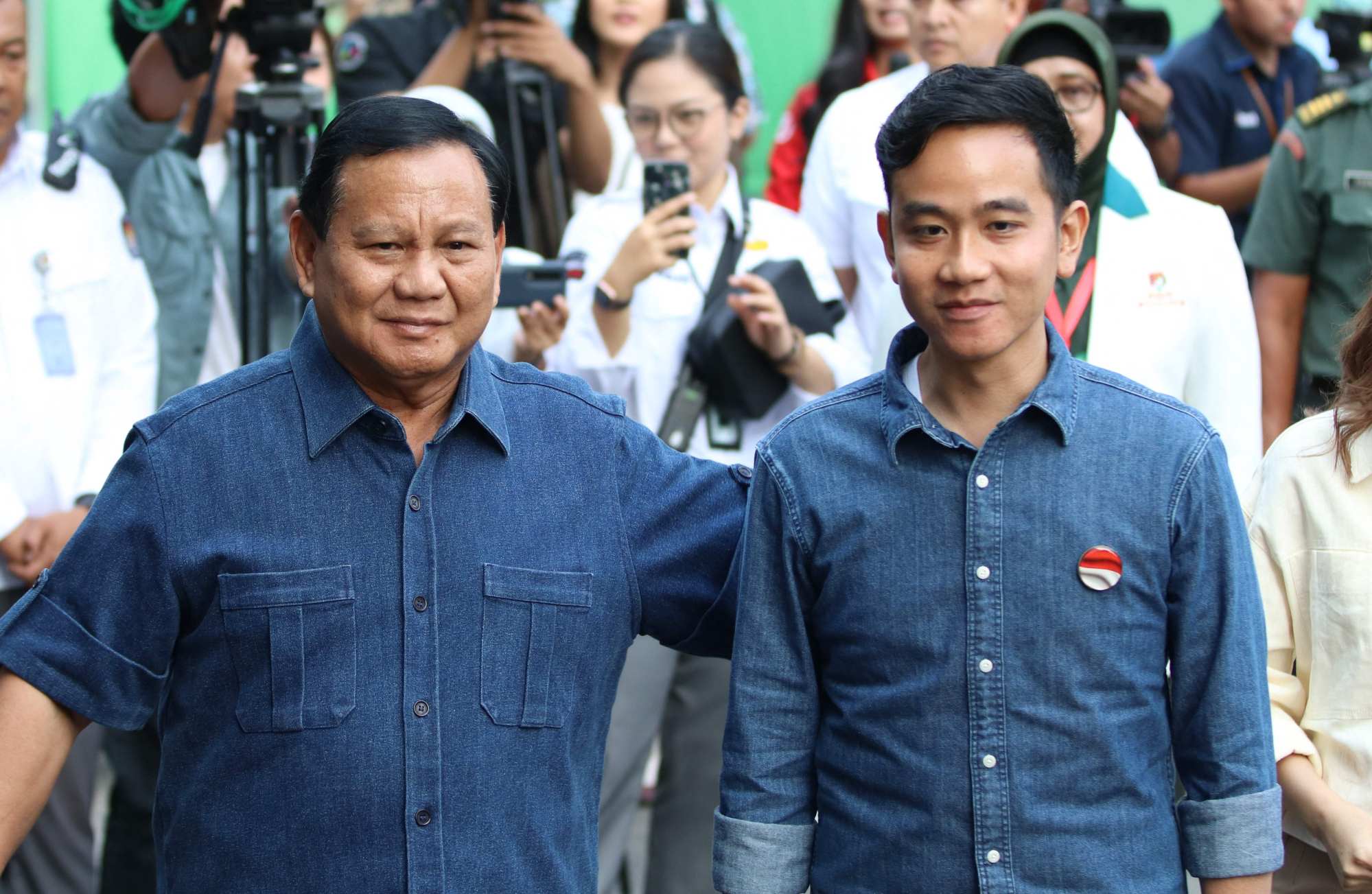
Twice last month, Prabowo made speeches warning against foreign influence, telling an audience of students at Muhammadiyah University in Malang, East Java on September 27 about Indonesia’s long history of colonisation and exploitation, and cautioning that the country should never again become “a puppet” of outsiders.
In another speech just a few days later, the Gerindra party chairman again warned Indonesians not to become “the playthings of major powers” who “clearly set forth a strategy of divide and conquer”.
Analyst Kevin O’Rourke, author of the Reformasi Weekly newsletter that focuses on Indonesian politics, said that Prabowo was likely in his campaign rhetoric to blame foreigners for hindering Indonesia’s growth.
In past elections, the former son-in-law of late strongman president Suharto had held the establishment responsible for society’s ills, but O’Rourke said this tactic would no longer work, as Prabowo was stripped of his opposition credentials when Widodo made him defence minister in 2019.
He wants Indonesia to engage with all major powers, not just the US and China
Despite the anti-foreigner rhetoric, Ahmad forecast that Prabowo would be pragmatic in his engagement with world powers if elected.
“He wants Indonesia to engage with all major powers, not just the US and China,” Ahmad said, adding that the outgoing defence chief would “want Indonesia to play a bigger role outside of the context of Asean regionalism” and also “change his stance to no longer being anti-China”.
“He would want to encourage stronger engagement with China, something that he has already done in a diplomatic and defence context,” Ahmad said, further predicting that “Prabowo could tend to be closer militarily to the US”.
Defence concerns
As Indonesia’s current defence minister and a former military man, Prabowo would appear to have the most expertise when it comes to defence matters.
Anies and Ganjar have likewise committed to modernising Indonesia’s military, with the former focusing in his manifesto on upgrading the country’s coastguard and protection of outlying islands.
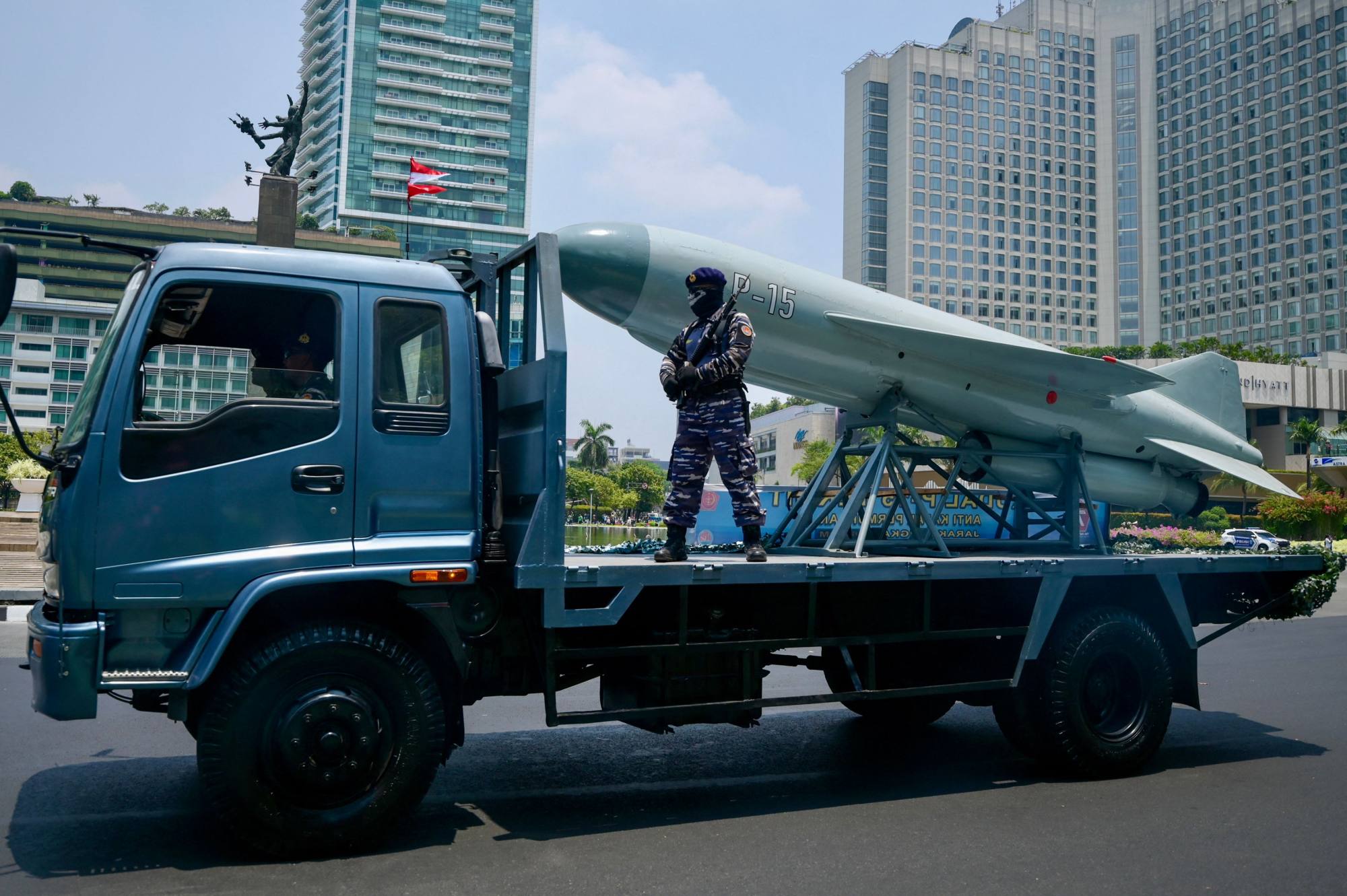
Ganjar, meanwhile, outlines in his campaign manifesto Towards a Superior Indonesia a plan to introduce anti-access and area denial weapons and strategies – which can span missiles, electronic warfare, mines, aircraft and coastal artillery – “to secure territorial sovereignty and the implementation of sovereign rights” in the country’s exclusive economic zone.
Though he described such equipment as crucial in the effort to modernise Indonesia’s armed forces, analyst Ahmad said by making the technology his defence priority, Ganjar was essentially signalling that the US and China should “not use Indonesian waters for their military interest”.
All three candidates have also pledged to bolster Indonesia’s domestic defence industry and strengthen its cyber defence capabilities.
Economic priorities
Of all the candidates, Ganjar is the most optimistic when it comes to the economy, setting targets of 7 per cent annual growth between 2025-2029 and creating 17 million new jobs over the next five years.
Anies’s camp has said he would create 15 million new jobs if elected and aim for an average growth rate of between 5.5 and 6.5 per cent – similar to Prabowo’s growth target, though he has not specified how many jobs would be added under his presidency.
Indonesia’s official growth rate was 5.31 per cent last year and Mohamad Faisal, executive director of the Jakarta-based Centre of Reform on Economics think tank, said it was “unrealistic” to expect the economy to expand at a much higher rate given the current state of geopolitics.
Jokowi stresses need to ‘prepare for long run’ as Indonesia’s currency struggles
Jokowi stresses need to ‘prepare for long run’ as Indonesia’s currency struggles
“In the next two or three years, global conditions will not be conducive. We still have the Russian-Ukrainian conflict and now, the war in [Gaza]”, he said. “These global pressures will be transmitted to the domestic economy and will cause inflation and weakening domestic consumption.”
Faisal noted that “Jokowi promised an economic growth of 7 per cent or more in his campaign, but now, nearly 10 years since he was first elected [to the presidency], we can’t even post an economic growth of 6 per cent.”
All candidates have said they would uphold Widodo’s flagship “downstreaming” policy, whereby exports of critical raw minerals such as nickel are banned and producers are required to build refining facilities onshore, with Prabowo even vowing to widen it further to include “copper, tin, agriculture products and maritime products”.
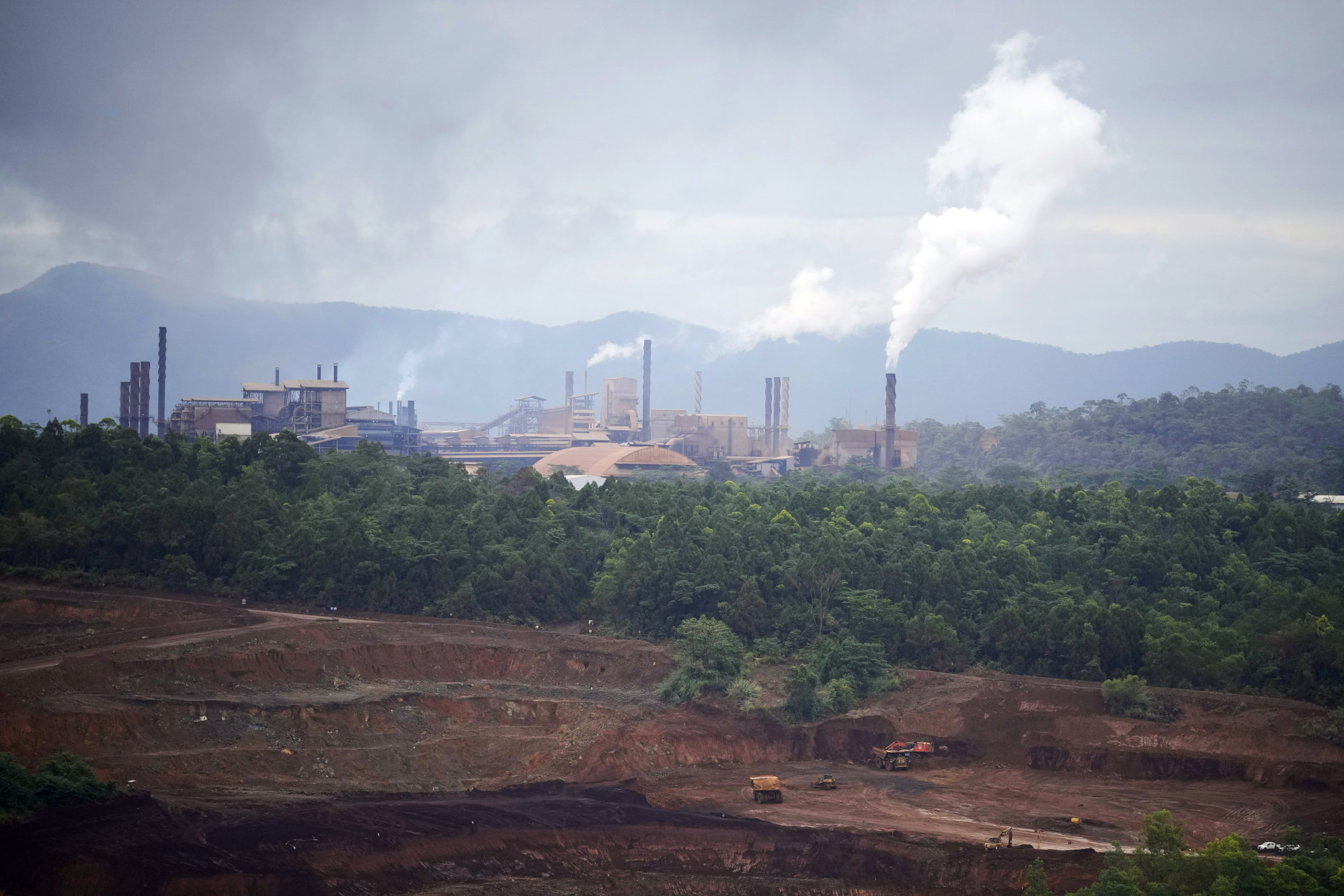
Yet Sulfikar Amir, an industry, innovation, and technology spokesman for Anies’ campaign, said under his candidate “there will be a ban on commodity exports, but it will not repeat the current downstreaming order”.
As it stands, downstreaming “basically gives away our materials to foreign investors who come to build processing facilities in Indonesia and ultimately export them,” he said. “Ultimately the ones who enjoy the [added] values are foreign investors.”
In his manifesto, Anies says he wants to revitalise Indonesian industry – aiming for the manufacturing sector to account for 22 per cent of Indonesia’s economy by 2029, up from 18.34 per cent last year. The focus would be on revamping “labour-intensive” industries such as textiles, electronics, automotive, and other finished goods, Sulfikar said.
“We see that there are many fundamental economic problems and [our] focus is to develop a just and equal economy. The new capital is considered not a priority,” Sulfikar said.
Ganjar, by contrast, said he aims to complete the new capital’s construction if elected, calling it “a symbol of futuristic Indonesia”. He has also vowed to ensure that all international agreements “prioritise domestic products and increase the competitiveness of the national economy”.
Indonesia election 2024: will Prabowo’s choice of running mate backfire on him?
Indonesia election 2024: will Prabowo’s choice of running mate backfire on him?
Belt and road projects offer “benefits for Indonesia, we cannot deny it,” Sulfikar said. “But the scheme and relationship between Indonesia and [the initiative] needs to be reviewed so that we would not deeply depend on [Chinese investments] that could harm Indonesia in the long term.”
“Look at the [Jakarta-Bandung] fast train [project]. Indonesia has to go into debt because the project is delayed. So everything [agreed under the belt and road] will be reviewed.”
Additional reporting by Reuters
[ad_2]
Source link


